Don’t rush to throw away apricot pits: an Uzbek showed what to do with them
Recently, a new employee, an Uzbek by nationality, joined our friendly team. He doesn’t particularly like our food from the canteen; he mostly brings his own. One day he brought an unusual dish made from apricot pits - shurdanak. In Uzbekistan it is eaten everywhere. These are bones fried in ash. They are somewhat reminiscent of pistachios.
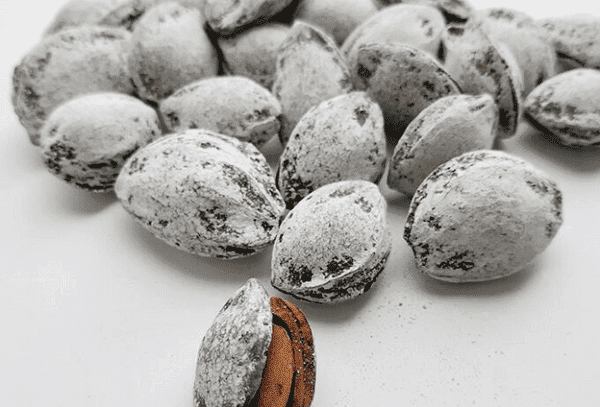
Very tasty, salty, indescribable taste. I immediately remembered my childhood, how they split the seeds with a stone and devoured the “almonds” with appetite. Mom also made apricot jam with the addition of these very tasty kernels. I decided to come home and look for recipes.
Shurdanak in Russian: delicious pistachios for beer
Our Uzbek turned out to be not very talkative. He treated me to shurdanak, but didn’t tell me the recipe. He says it's a national secret. Eh, sorry. There are a lot of recipes on the Internet, but which one is correct, one can only guess.
Somewhere they boil the bones in white clay and then fry them. But basically they write that you need to soak them for a long, long time in salt water, then split them, boil them, and then fry them in oven ash. There is an opinion that they split on their own, either during cooking or frying. But I decided not to waste time on experiments.
I prepared shurdanak according to the following simplified recipe:
- I separated the pits from the apricots. I will describe how to do this quickly and cleanly below (where the jam recipe is).
- I filled them with water and salt (200 g of salt per liter of water) and left for 4 hours.
- She took a hammer in her hands and carefully pricked the bones.You need to hit here (on the back side of the stalk, at the “seam”):
Place the bone on the opposite side on something solid and gently hold it. We hit with a hammer. Voila, the bone cracks easily. Just don’t hit it too hard, otherwise it will open completely and the kernel will fall out. And of course, we make sure that we don’t hit our fingers with the hammer.
- I returned the cracked apricot pits to the salted water and set them to simmer over low heat. Cooked for 2 hours.
- I put them on a sieve, then put them on a baking sheet in the oven, turned on low (70-90 degrees). I opened the door slightly so that the bones did not burn and dried well. I dried them for half an hour. They became whitish, covered with a layer of salt.
Of course, the difference with the Uzbek shurdanak is noticeable - the taste is not so rich and bright, but it is also very tasty. My husband and I devoured the entire plate in one sitting. I will cook again. By the way, you can not only cook shudanak, but also buy it. They told me that it is sold in Central Asian markets where they sell chickpeas, mung bean, devzira and other such things. You can also find peeled apricot kernels there. But they say they are expensive. It's profitable to cook yourself.
Apricot jam with kernels - step-by-step recipe
An amazingly tasty and beautiful jam with nutty notes. It tastes like candy to me. Apricots are boiled whole, each with an apricot kernel inside. The contour of the berries is well guessed. They are dipped in sweet syrup. Apricots can be eaten simply as a healthy sweet, and the syrup can be poured over pancakes and pancakes.
For preparation you will need:
- 1 kg of apricots;
- 1 kg sugar;
- 250 ml water;
- 1 lemon (lemon juice).
To quickly separate the pit from an apricot of any type and softness, take a simple pencil.We place it on the back side of the stalk, at the so-called “spout” (blunt side), and press lightly.
The bone comes out from the back side. At the same time, it is almost clean, and the apricot itself is intact, except for a small hole. These are the apricots we need for jam. Step by step recipe:
- Peel the apricots so that they remain whole.
- Carefully prick the skin with a fork. This is necessary so that it does not burst during the cooking process.
- Dry the seeds in the oven for half an hour to make the shells brittle. We split it (I described a simple method above), and put the kernels in a bowl.
- Now, attention! We stuff the apricots with kernels. We put one thing in each berry, otherwise there won’t be enough.
- Add sugar, pour water and leave for 1 hour until the juice is released and the sugar dissolves. If the apricots are sweet, you can use less sugar so that the jam does not turn out cloying.
- Bring the mixture to a boil and immediately turn it off. We wait until it cools down completely. We repeat this 4-5 times.
- Squeeze lemon juice into the saucepan one last time. You can also grate the zest from the lemon. Bring the jam to a boil and cook for 2-3 minutes.
- After this, the jam can be sealed. But I made it simpler - poured it into clean glass jars. Stores perfectly in the refrigerator. It may last a year, but we usually eat such deliciousness earlier.
I heard somewhere that apricots are close relatives of almonds. That's why their nucleoli look so much like nuts. I really liked them as a child. I remember how my parents scared me that they were poisonous raw, but the kids and I still ate them. No one felt bad. After cooking and frying, the taste of the kernels becomes even sweeter and subtler. Thanks to my Uzbek colleague for reminding me about them!
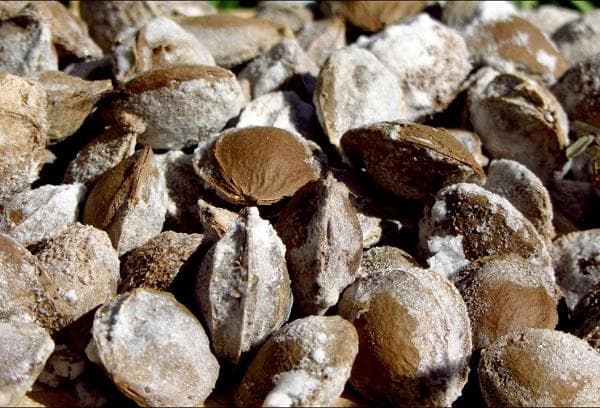
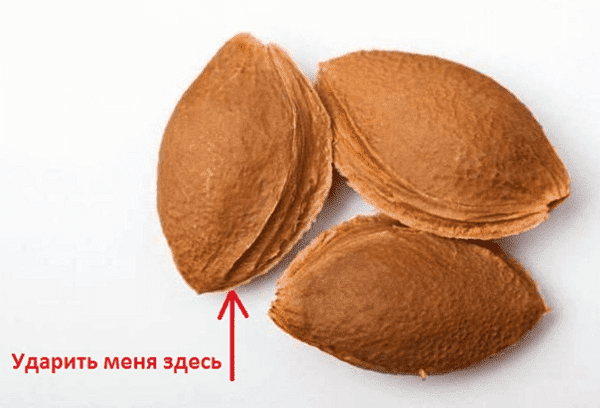
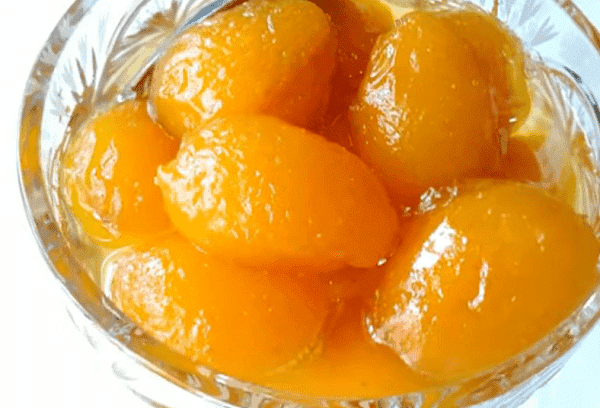
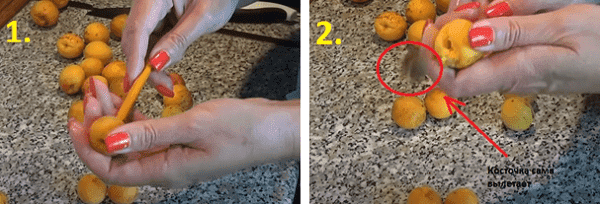
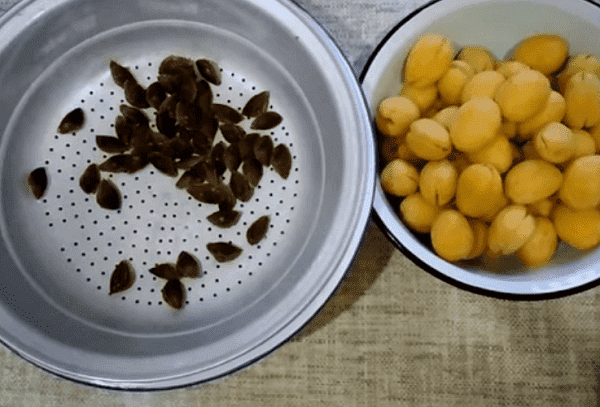
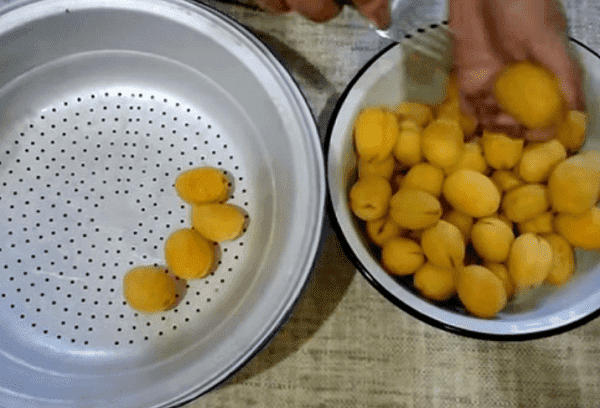
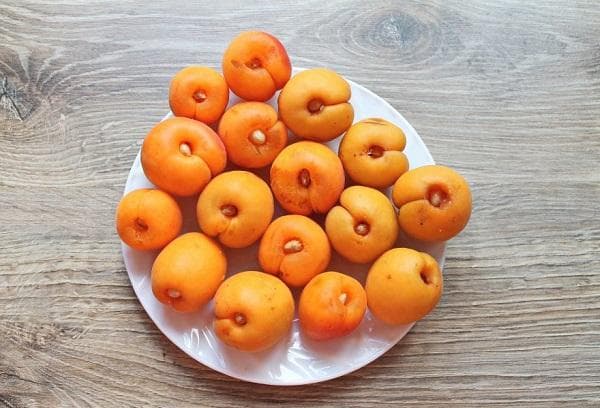
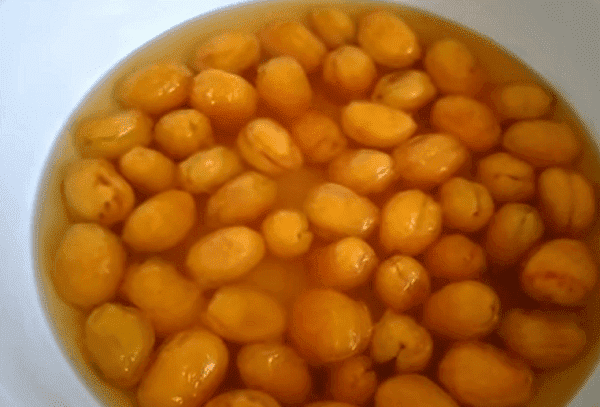
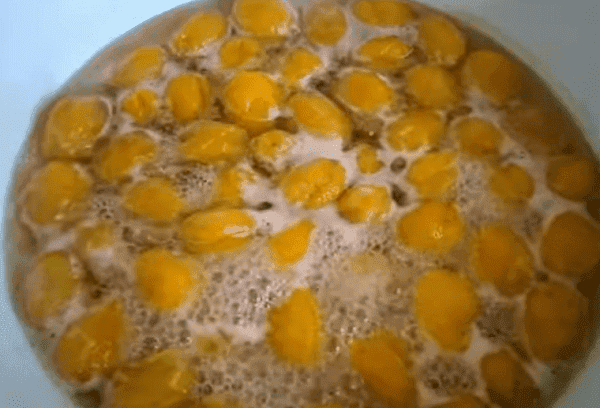
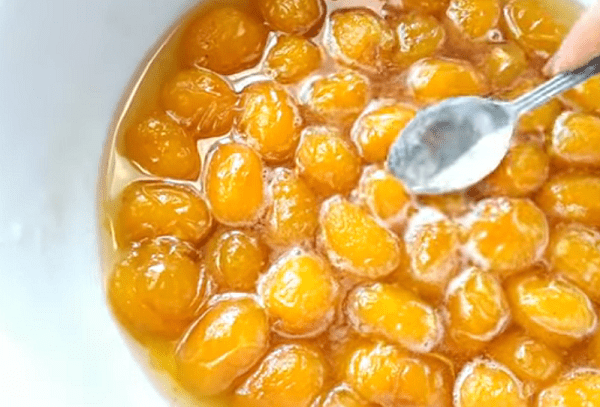
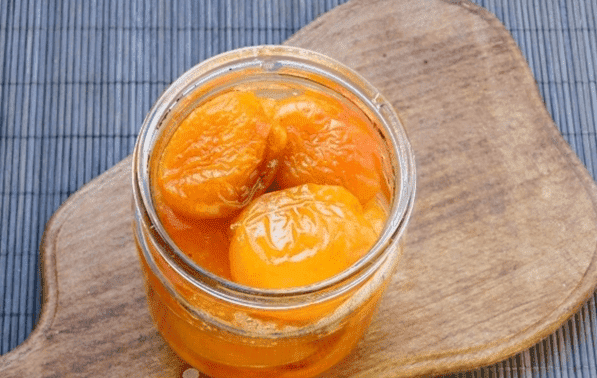
Thank you for your kind words for the Uzbeks, otherwise on the Internet there is more negativity towards us than positivity.
Thank you, very interesting, I’ll try to make another recipe from the Uzbeks, many years ago an Uzbek woman gave a recipe for cooking DUMLYAMA in a cauldron, maybe the name is not quite right and I cooked it once, very tasty, but it took a long time. But I don’t have any negativity towards all non-Russians, I myself am not Russian - Chuvash, but my husband is Russian, but he grew up in Azerbaijan until he was 18 years old and his friends were Azerbaijani, Armenian, Georgian and others, and my husband has only good memories of them, so they had Our Uzbek builders are wonderful guys,
What about hydrocyanic acid? There is quite a lot of it in apricot kernels; you can’t eat too much of them.
Apricots that grow in central Russia are not suitable for all this; the kernels there are very bitter and the pulp contains cobwebs, which become hard after cooking. Unfortunately, buying apricots from Central Asia is very expensive.
It's a pity for him, he brought him far from his homeland